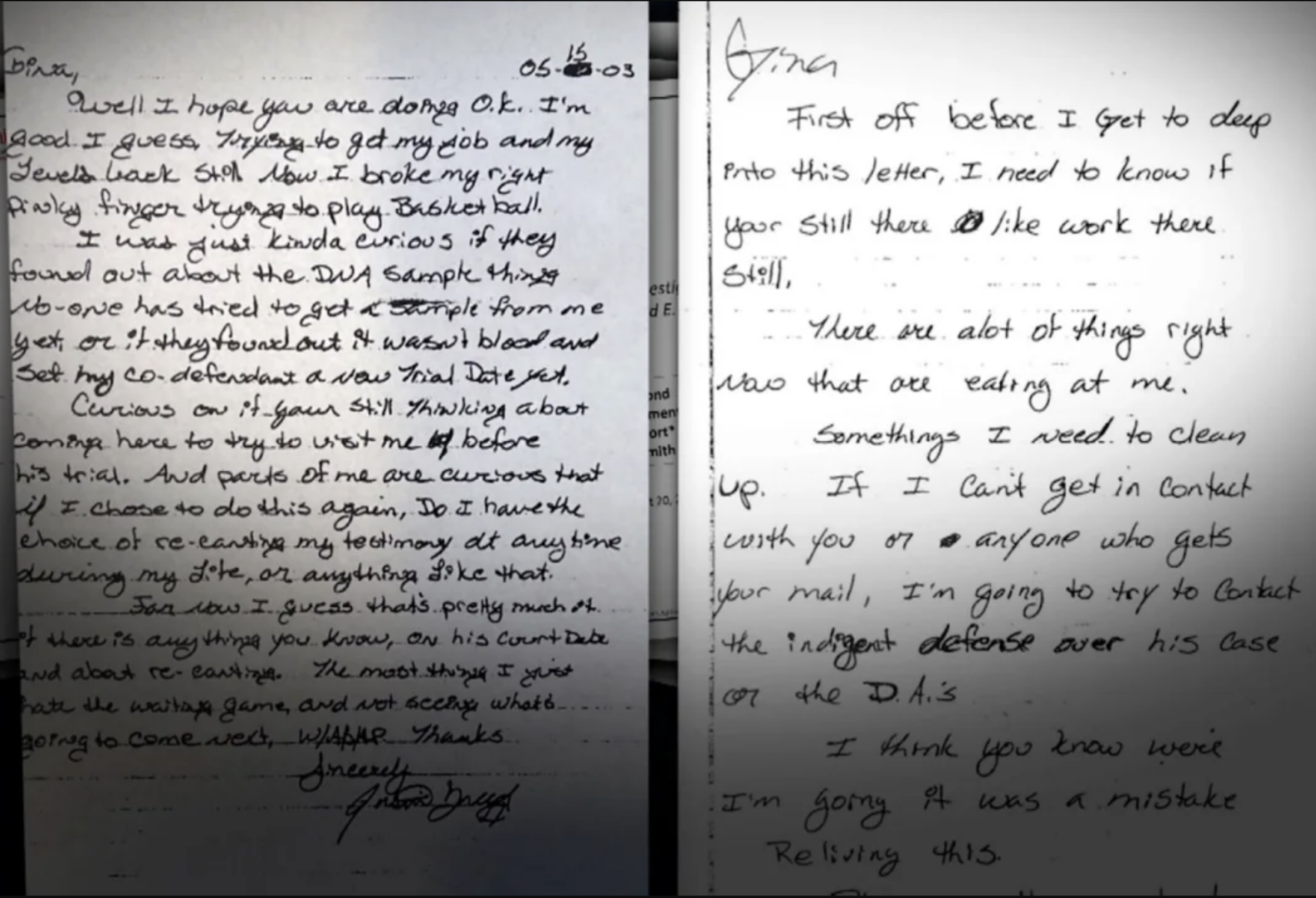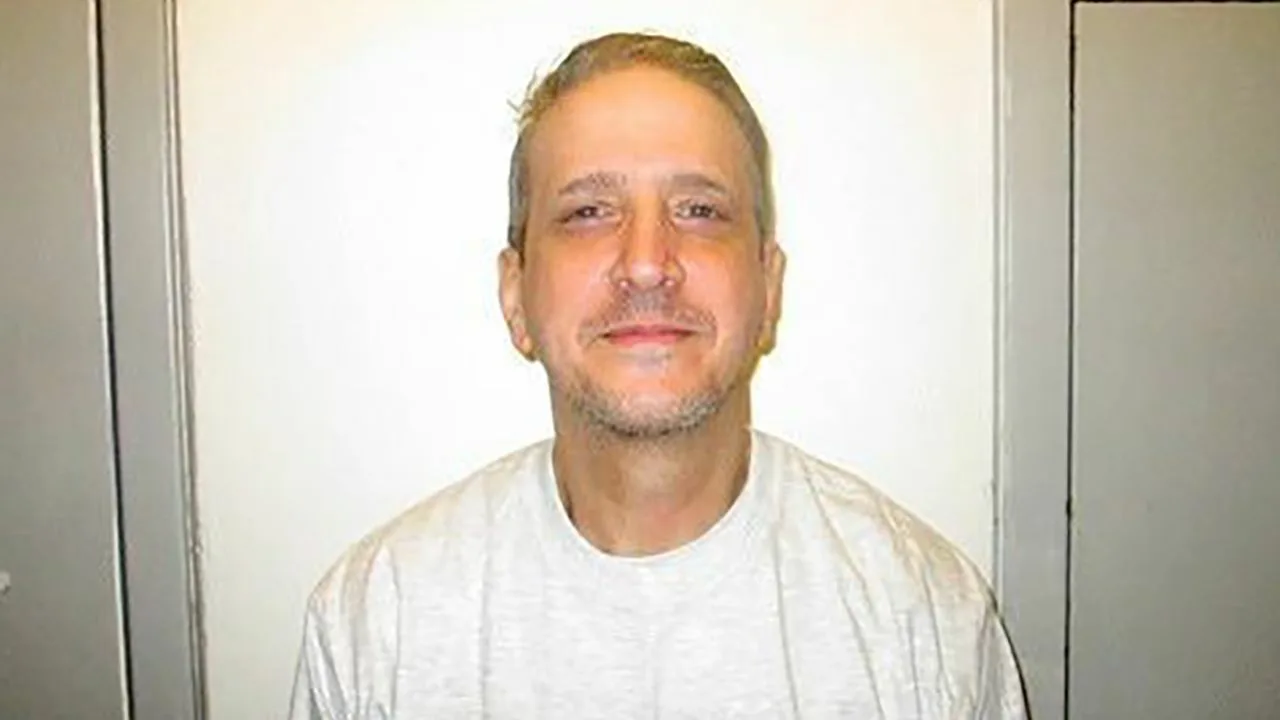
Richard Glossip: Facing Execution in Oklahoma Despite Strong Innocence Claim
Mr. Glossip has been on Oklahoma's death row for 25 years. SCOTUS recently halted his execution.
06.06.23 By Alicia Maule
Richard Glossip’s case is a harrowing example of how the justice system can fail an innocent person. Mr. Glossip has been on death row in Oklahoma for 25 years for “masterminding” the 1997 murder of Barry Van Treese, even though it is undisputed that a man named Justin Sneed actually committed the crime.
Mr. Glossip had no criminal history and was only implicated in the crime after detectives suggested his name to Mr. Sneed six times. Mr. Glossip’s trial was tainted by prosecutorial misconduct, a leading cause of wrongful conviction. In an extraordinary step, Oklahoma Attorney General Gentner Drummond has conceded errors in Mr. Glossip’s case and asked the court to overturn his conviction, and now supports his clemency and opposes his execution.
Mr. Glossip most recently had an execution date set for May 18, 2023, until the U.S. Supreme Court granted him a stay of execution on May 5, just as Mr. Glossip was saying in-person goodbyes to his loved ones. Mr. Glossip has faced execution nine times — he came so close to being executed three of those times that he was even served his last meal.
“I yelled out, ‘you’re kidding!’ at first,” Mr. Glossip told CNN. “I want to continue to fight. I want to continue to get my message out to people.”
Attorney General Drummond has asked the Oklahoma Court of Criminal Appeals to throw out not just Mr. Glossip’s death sentence, but his entire conviction because the trial that resulted in his death sentence was unfair. However, the court refused, citing procedural restrictions.
On April 26, 2023, the Oklahoma Pardon and Parole Board split 2-2 on whether to grant Mr. Glossip clemency, resulting in a denial of relief. The board’s fifth member was recused because his wife was the lead prosecutor in Mr. Glossip’s case; no unconflicted replacement was seated. In order for the Governor to grant clemency under Oklahoma law, it must be voted for by a majority of the clemency board. This even split resulted in the denial of clemency.
The temporary stay was granted to allow the Supreme Court time to review two petitions from Mr. Glossip’s legal team that are currently pending before it. On June 5, the Innocence Project also filed an amicus brief to the high court — which has the power to prevent his wrongful execution.
The Innocence Project brief states that Mr. Glossip’s case “implicates many of the hallmarks of a wrongful conviction — including an acknowledgement by the State itself that it committed prosecutorial misconduct that renders Richard Glossip’s capital conviction fundamentally unreliable.” The brief, which is authored by Seth Waxman, the former U.S. Solicitor General appointed by William J. Clinton, further states:
Over more than 30 years of experience, the Innocence Project has found that prosecutorial doubt about guilt or the reliability of a conviction is a substantial indicator of a wrongful conviction. And when, as here, the State expresses not merely doubt, but a firm conviction that a capital conviction was “obtained with the benefit of material misstatements to the jury by the State’s key witness,” [quoting A.G. Drummond], it is virtually unthinkable that the conviction could be allowed to stand.
So, Mr. Glossip, who is represented by Don Knight, Amy Knight, John Mills, and Joe Perkovich remains on death row for a crime he didn’t commit.
Here’s what you should know about Mr. Glossip’s case:
1. Mr. Glossip’s conviction is based almost entirely on false statements made by Justin Sneed, who has since recanted his testimony and admitted to lying about Mr. Glossip’s involvement in the murder.
Originally, Mr. Sneed admitted to the crime and implicated Mr. Glossip as his accomplice in exchange for a plea deal that spared him the death penalty.

2. Two independent reports and a team of lawyers and investigators have identified numerous flaws in Mr. Glossip’s conviction.
The first report, conducted by the national law firm Reed Smith at the request of a bipartisan group of Oklahoma lawmakers, concluded that no reasonable juror who heard all the evidence, which has never been presented, would have found Mr. Glossip guilty of the “murder for hire” for which he was convicted. The second report, conducted by an independent counsel appointed by Attorney General Drummond, documented multiple instances of error that cast serious doubt on Mr. Glossip’s conviction.
A team of lawyers and investigators were asked by a bipartisan group of politicians in Oklahoma to look into Mr. Glossip’s case. They reviewed 146,000 pages of documents; contacted 72 police and civilian witnesses, 11 jurors, and two experts; interviewed 37 witnesses (police and civilian) and several members of the media with knowledge of the case; and conducted a 3.5-hour interview of Mr. Glossip in the Oklahoma State Penitentiary.
They concluded the trial in 2004 and found, “all of its failures can neither be relied on to support a murder for hire conviction nor as a basis for the government to take the life of Richard E. Glossip.” The team also found new evidence that jurors said they “wish they’d seen” and that almost certainly would have resulted in a not-guilty vote.
3. Oklahoma Attorney General Drummond has conceded error in Mr. Glossip’s case
Oklahoma Attorney General Drummond has conceded error in Mr. Glossip’s case, supporting clemency and opposing his execution. After the independent counsel’s investigation, Attorney General Drummond said, “After thorough and serious deliberation, I have concluded that I cannot stand behind the murder conviction and death sentence of Richard Glossip.” He asked the Oklahoma Court of Criminal Appeals to set aside Mr. Glossip’s conviction and remand the case to the district court. That request was denied on April 20, 2023.
Mr. Drummond then took the unprecedented step of asking the Oklahoma Pardon and Parole Board to grant Mr. Glossip’s clemency request. In a letter to the Board, Mr. Drummond wrote:
“Based on the complete record including the new evidence the jury did not hear, it would represent a grave injustice to execute a man whose trial conviction was impugned by a litany of errors, that when taken in total would have created reasonable doubt. No execution should be carried out under such questionable circumstances.”
“If the State’s chief law enforcement officer thinks Richard Glossip’s conviction is unreliable and based on the misconduct of those he is in charge of, the State should not be permitted to execute him. The U.S. Supreme Court should do what the law and common sense require and stop this execution,” said John Mills, an attorney for Richard Glossip.
4. Politicians in Oklahoma agree there is too much doubt to execute Mr. Glossip.
Sixty-two Oklahoma legislators — including at least 45 death-penalty-supporting Republican lawmakers — have reached the conclusion that there is too much doubt to execute Mr. Glossip.
5. Mr. Glossip has cases pending in the United States Supreme Court that could overturn his flawed conviction.
You can support Mr. Glossip, who remains on death row for a murder he didn’t commit by:
- Sharing his story on Twitter, Facebook, Instagram, and LinkedIn.
- Following and supporting Save Richard Glossip.

Leave a Reply
Thank you for visiting us. You can learn more about how we consider cases here. Please avoid sharing any personal information in the comments below and join us in making this a hate-speech free and safe space for everyone.